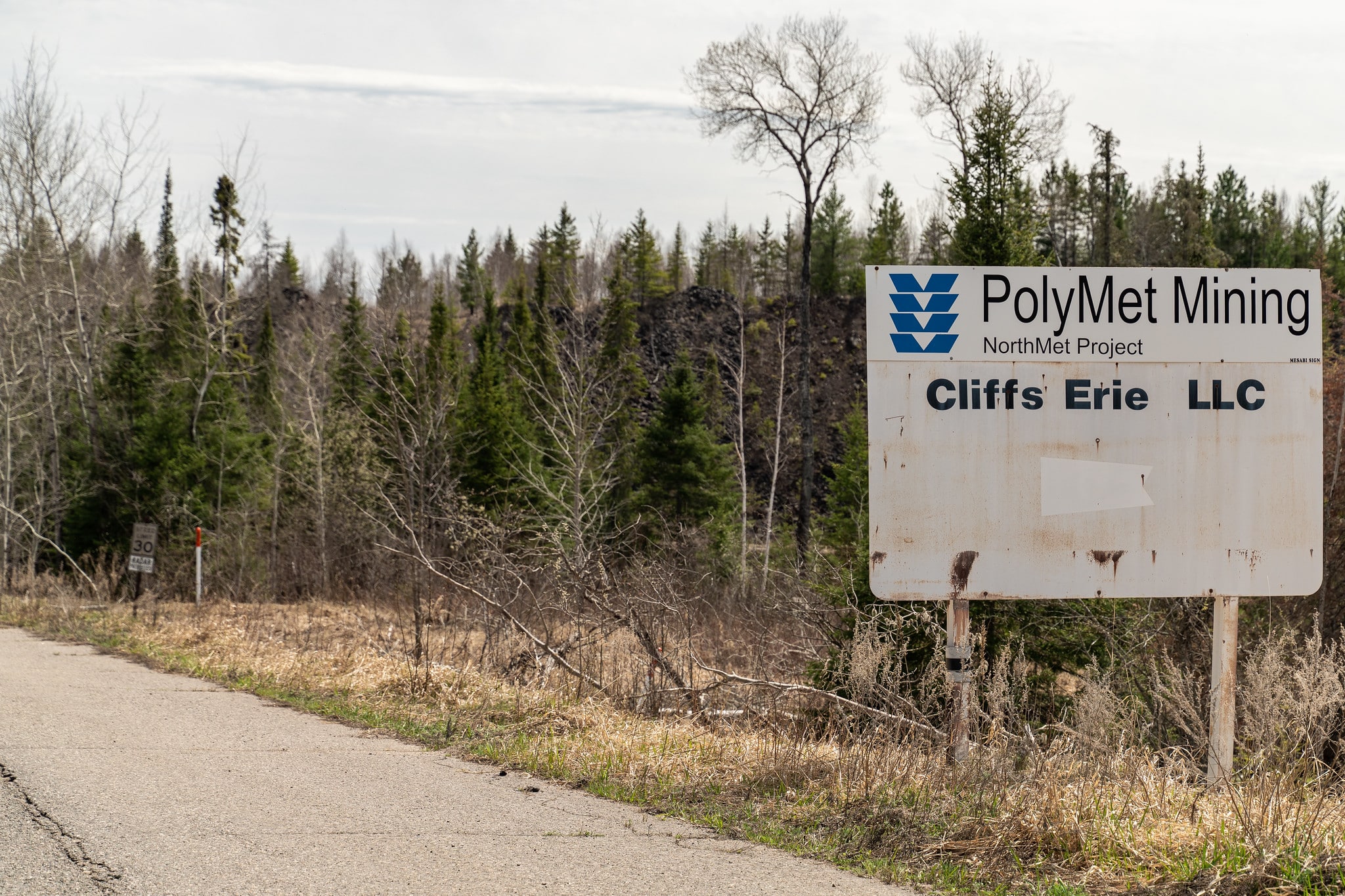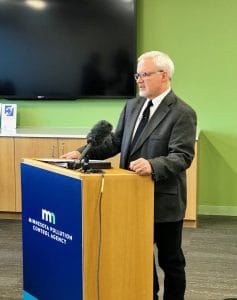
The highest court in Minnesota has unanimously ruled against PolyMet Mining and the Minnesota Pollution Control Agency, saying a permit issued by the state to the company was “arbitrary and capricious.” The court ordered the MPCA to remedy several issues with its permitting process and incorrect or missing information. It is another major blow to the mining company, which has seen several of its permits overturned by the courts.
PolyMet, now known as NewRange Copper, has proposed a open-pit mine for copper and nickel in northeastern Minnesota. The location near Hoyt Lakes would be in the upper reaches of the St. Louis River watershed. Owned by Swiss conglomerate Glencore, the project proposes to mine sulfide-bearing ore, which has an elevated risk of causing pollution.
The MPCA issued a National Pollution Discharge Elimination System (NPDES) permit to PolyMet in December 2018, after the project’s Environmental Impact Statement was finalized. Environmental advocates criticized it for not complying with the federal Clean Water Act. At a lawsuit in St. Paul that was the origin of this week’s ruling, environmentalists including WaterLegacy and the Minnesota Center for Environmental Advocacy argued that state officials had sought to conceal concerns by the U.S. Environmental Protection Agency (EPA) during the public comment period.
“The Supreme Court decision on the PolyMet water pollution permit is a complete vindication,” said Paula Maccabee, Advocacy Director and Counsel for WaterLegacy. “The Court not only threw out another critical piece of PolyMet permitting, but also held the MPCA accountable for its irregular and arbitrary procedures.”
The EPA’s comments and the communications between the federal and state agencies about the process were for the most part only fully understood after WaterLegacy filed Freedom of Information Act requests.
‘Danger signals’

In its 6-0 ruling, the Court agreed with environmental advocates that, as permitted, the PolyMet mine would raise the unacceptable risk of polluting water in the Lake Superior watershed above legal levels. The justices also found that the MPCA, led at the time by John Linc Stine, had inappropriately convinced the EPA not to submit written comments during the public comment period.
“Today the Minnesota Supreme Court recognized that what our state agencies do during permit review processes matters. Unfortunately in the case of PolyMet, our MPCA violated the public’s trust, and state law, when it suppressed crucial scientific concerns about the water permit,” said Joy Anderson, senior staff attorney for MCEA. “This decision is important not only for the PolyMet case, but to ensure that when our state agencies make any decision that affects Minnesotans, they do so openly and fairly.”
By asking the EPA not to submit written comments during the comment period, the MPCA did not have to respond in writing to the federal agency’s concerns. Instead, the MPCA asked the EPA to read its comments over the phone, after the public comment period was concluded. The EPA, with the regional office led at the time by Trump appointee Cathy Stepp, ultimately agreed, and never submitted any written comments.
“On the issue of the permitting process, we conclude there are danger signals suggesting that the MPCA did not take a hard look at whether the permit complies with the Clean Water Act (CWA) and that the MPCA did not genuinely engage in reasoned decision-making in dealing with concerns that were raised by the EPA,” the court wrote in its opinion.
Notably, EPA staff were concerned about the MPCA’s finding that the PolyMet mine did not have the “reasonable potential” to cause water pollution. The MPCA ultimately included that conclusion in its permit.
Secret inadequacies
In a concurring opinion, Associate Justice Anne McKeig, the first Native American person to serve on the court, added to the criticisms with a focus on how it affected the Fond du Lac Band of Lake Superior Chippewa downstream of the proposed PolyMet mine.
“The EPA raised more than mere concerns with the MPCA’s draft permit; the EPA identified specific inadequacies that, if left in the final permit, failed to protect the Band’s standards,” McKeig wrote. “But the MPCA and the EPA reached an arrangement that ultimately kept any record of these inadequacies secret. The MPCA and the EPA sought to avoid public scrutiny and to hide the risk of illegal water pollution from the public eye. This secrecy is unacceptable.”
To address the court’s concerns, the MPCA will now need to revise the permit and the administrative record on which it is based. This will include asking the EPA to offer its comments formally and in writing.
In a statement, NewRange, the corporate successor to PolyMet, said the company “looks forward to working with the respective state, federal and tribal agencies to address the court’s ruling,” and believes it will “confirm the project protects water quality.”
More information:
- ‘Secrecy is unacceptable.’ Minnesota Supreme Court reverses NewRange mining permit after regulators shield federal criticisms – MinnPost
- Minnesota Supreme Court deals another setback to proposed NorthMet mine – MPR News
- What is the PolyMet permit scandal? – WaterLegacy

